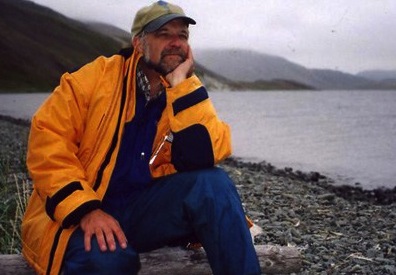Lawrence Millman is the author of eleven books, including Northern Latitudes, Last Places
, An Evening Among Headhunters
, and Lost in the Arctic
. His travel articles have appeared in such magazines as Smithsonian, National Geographic Adventure, The Atlantic Monthly, Sports Illustrated, and Islands. He has made 30 trips and expeditions to the Arctic and Subarctic, discovered a previously unknown lake in Borneo, and is a Fellow of the Explorers Club. Best of all, perhaps, he has a mountain named after him outside Angmagssalik, East Greenland. When not on the road, Millman lives in Cambridge, Massachusetts.
How did you get started traveling?
When I was eleven, my father took me on a fishing trip to northern Canada — wild country that was quite different from the domesticated flatlands of the American Midwest, where I grew up. I found myself hanging out with an old Ojibway guide named Marius, who reputedly talked to fish. My interest in Marius doubtless indicated one of my future directions — i.e., as an ethnographer.
How did you get started writing?
At age six, I wrote a cowboy story called “Quivox and the Ghosts.” While I was too young to celebrate remote and distant lands, I could celebrate remote and distant letters of the alphabet, in this instance the letters “q” and “z.” So I repeated the word “Quivox” as often as possible in the story.
What do you consider your first “break” as a writer?
In the week of publication, my first book Our Like Will Not Be There Again was reviewed enthusiastically by Edward Hoagland in the New York Times Book Review, Larry McMurtry in the Washington Post, Walter Clemmons in Newsweek, and Time, among other places. By the end of the second week, I’d received calls from dozens of editors, all wanting me to travel on their behalf…
As a traveler and fact/story gatherer, what is your biggest challenge on the road?
I habitually misread my compass, fall through ice, tumble down mountains, and somehow succeed in insulting the witch doctor, so my biggest challenge on the road is discovering a way to curb my ineptitude.
What is your biggest challenge in the research and writing process?
Writing is a necessary and indeed valuable challenge. The mot juste is elusive, but when you find it, you’ve found a metaphoric Holy Grail.
What is your biggest challenge from a business standpoint? Editors? Finances? Promotion?
Editors are a challenge if not an impediment. Equipped with primitive tools, they cut huge bleeding chunks from my manuscripts. Or armed with blunder-busses, they fire random fusillades at my unarmed prose. The result? A remarkably pissed-off Muse. If it weren’t for the fact that I need them, I’d take out a fatwah on almost all editors from sea to shining sea.
Have you ever done other work to make ends meet?
Once upon an earlier time I taught what a southerner might call Creative Rotting.
I also get grants for Arctic exploration and inventories of fungi (I’ve published articles about mycology in scholarly journals). And once I managed a mussel aquaculture in Maine.
What travel authors or books might you recommend and/or have influenced you?
I’ve probably been more influenced by older writers like Sven Hedin, Sir Richard Burton, Knud Rasmussen, Mark Twain, and John Cowper Powys than by my contemporaries. Among those contemporaries, my favorites include Paul Theroux, Tim Cahill, Edward Hoagland, David Quammen, Elliott Merrick, Simon Winchester, Hassoldt Davis, and Jim Harrison.
What advice and/or warnings would you give to someone who is considering going into travel writing?
Never forget that point of view matters as much as delineation of place. Your point of view. For good travel writing is as much about the writer — his or her prejudices, politics, love life, and so on — as it is about Place. Also, don’t give up your day job.
What is the biggest reward of life as a travel writer?
The knowledge that I’m doing what I most like to do (i.e., travel), and that I’m doing it on someone else’s nickel. Then there’s the gratitude that comes from the fact that I’m not part of the normal workaday grind, commuting back and forth, back and forth, in sickness and in health, till Death does me part.

